To fight child exploitation, Tony’s Chocolonely open chain lead Joke Aerts wants to apply its five sourcing principles at scale. How is she going about the task?
Joke Aerts “was a silly name to emigrate to the US [with],” laughs the Belgian-born open chain lead for ethical chocolate maker Tony’s Chocolonely, with self-deprecating humour. (It’s pronounced ‘yolka’, explains Aerts, happily back in Amsterdam.)
But her job is no joke: eradicating forced labour from the chocolate supply chain – something she’s been working on tirelessly in her five years at Tony’s.
At its core, Tony’s open chain is about using transparency and higher pay to change chocolate production in west Africa, a region where one in two children are engaged, often forcibly, in illegal labour. “They’re lifting very heavy bags, using machetes,” she explains. “It’s dangerous child labour. And that’s extremely prevalent in cocoa.”
Aerts initially joined Tony’s as a consultant, having spent her career in sustainable agriculture working for NGOs and on Fairtrade certification, in categories ranging from coffee and bananas to palm oil and timber.
“I ended up being like: ‘You guys should just hire me to figure this out,’” she recalls. And so they did.
At the time, Tony’s had already developed its famous five sourcing principles: to only use traceable cocoa beans; always pay a higher price; invest in strong farmers; nurture long-term relationships; and stay committed to quality and productivity. It had also started buying segregated, traceable cocoa. But Aerts started formalising what is now a large, well-oiled machine – piecing together how Tony’s open supply chain works, from operations to invoicing and reporting.
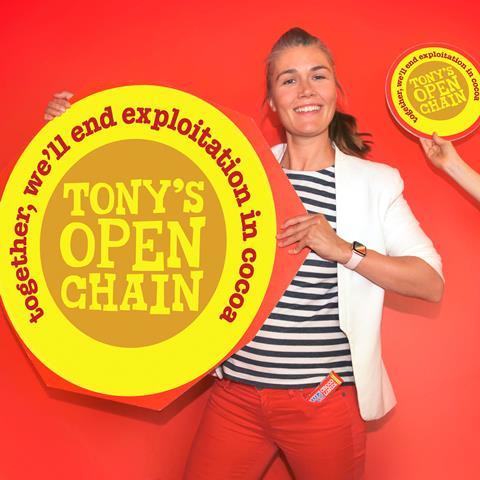
Age: 44
Family: Three children
Potted CV: Over 20 years of both field and market experience in non-profit sustainable agriculture and sustainability standards at Rainforest Alliance, FSC, RSPO, Fairtrade. Now leading the credible scaling team for Tony’s Open Chain.
Best advice: “You’ll only regret the things you didn’t try.” (From the guy making my breakfast pancakes at a diner in Baltimore, US.)
Business icon: My late mother-in-law, Kumkum Mittal, who started and grew several businesses while raising three boys. What she juggled is incredible.
Favourite album: Rubber Soul by The Beatles.
Favourite Tony’s product: The purple bar: dark milk pretzel toffee bar.
Credible scaling
“Fast-forward five years, and luckily we have a lot more people on board, both in leadership and on the ground in west Africa,” she says, with a dozen staff in Ghana and Ivory Coast working with 11 co-operatives who represent 17,740 farmers. Aerts’s job is continuing what she calls the process of “credible scaling”.
“I’ve worked on programmes that grow a lot. As they grow there’s a tendency for the impact to go down,” she says. “It’s one thing to do something in a small sphere of influence and quite another to do it on a large one.”
As it scales production Tony’s principles are “malleable enough that we can add bits as we learn more” while remaining true to its values. And “Tony’s is proving it’s possible to be well-liked and profitable,” says Aerts.
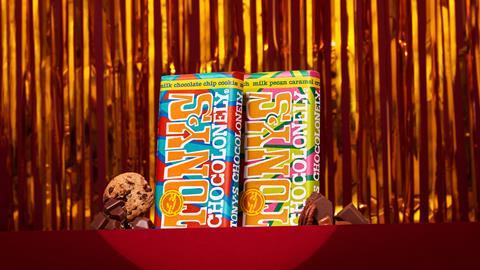
Thankfully, Tony’s isn’t fighting the good fight by itself. It has like-minded “mission allies”, including Aldi and Ben & Jerry’s. To qualify, they must make a five-year commitment to Tony’s principles. Tony’s and its allies bought 14,826 tonnes of cocoa last year.
Together, they are hoping to put a dent in what Tony’s describes as “the unfair distribution of value and power in the chocolate industry that drives cocoa farmers into poverty”.
The only way to do so, says Aerts, is to start playing among the industry’s “big boys”, with Nestlé alone controlling over 10% of the cocoa market in west Africa, Aerts point out.
“We get criticised that [open chain sourcing is] OK for Tony’s, but for the big guys, it’s different,” she says. “We want to be big enough that we have a seat at the table.”
Currently, Tony’s buys just 0.5% of the cocoa produced in West Africa. But through its growing network of farmer collectives – which use GPS tracking, spot checks and detailed data collection to ensure fair treatment and prevent illegal deforestation – Tony’s is slowly scaling up, while still maintaining its principles. Eventually, it hopes to grow enough to buy 5% of the region’s cocoa, though the end goal is for all west African chocolate (60% of the world’s chocolate comes from Ghana and Ivory Coast) to be slavery-free.
“We know that volume is one of our bigger levers of impact,” says Aerts. “We want to get really big. Five per cent of west African cocoa would be like 50-60 co-operatives. That’s massive.”
It’s moving in the right direction. In September, Tony’s reported €150m in revenue, up 23% year on year. The problem, though, is that even at 10 times its current size, Tony’s will still be dwarfed by the industry’s heavy hitters.
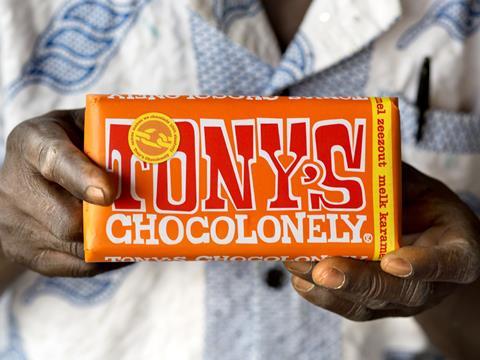
Industry commitment
It’s why Aerts is frustrated by the lack of industry commitment to eradicating exploitation and deforestation. She says many companies would rather obfuscate than pay a few extra pence per chocolate bar to ensure higher living standards.
“Everyone understands that cocoa farmers are poor, but not everyone is committed to getting them out of poverty,” she says.
And while Tony’s clearly believes in using a carrot, it also sees a need for the stick. Alongside its search for more mission allies, the company is pushing for harder-line legislation to protect chocolate workers.
Aerts notes the lack of action since the 2001 Harkin-Engel Protocol, a voluntary public-private agreement aimed at eliminating the worst forms of child labour in the growth and processing of cocoa in west Africa. The frustration in Aerts’s voice becomes palpable.
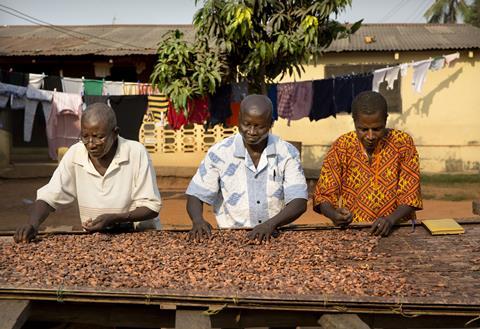
“What we’ve seen is that over and over again voluntary commitments fall in the water,” she says. “If it’s optional, big companies don’t do it…It has to become the way of doing business.”
As such she’s pleased with the incoming EU deforestation legislation that will require importers of “high-risk categories” to show their imports are 100% traceable. “We’ve been doing that for years.” But she’s emphatic that more must be done. “The problem with legislation is, we have to make sure it’s not the end of it.”
And Aerts – and Tony’s – have no intention of stopping there. “We do long-term commitments. When you’re working in poverty, deforestation, child labour, you’re not going to make a dent in one year.”







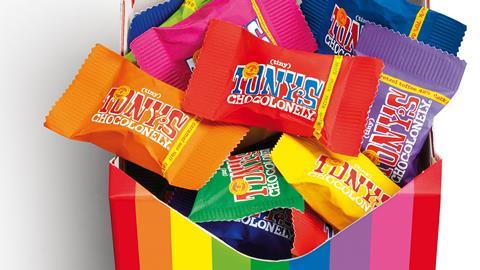






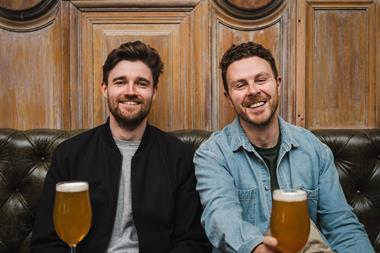
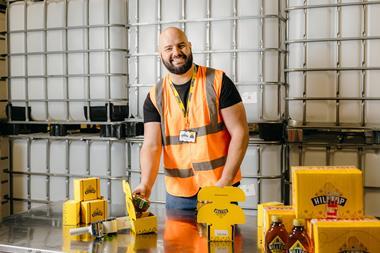
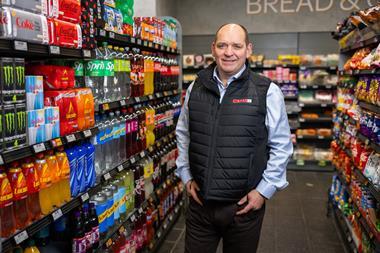
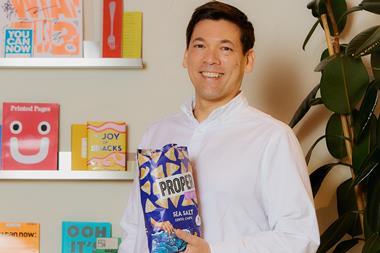
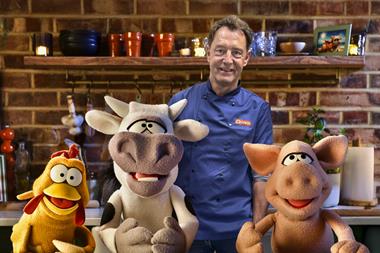
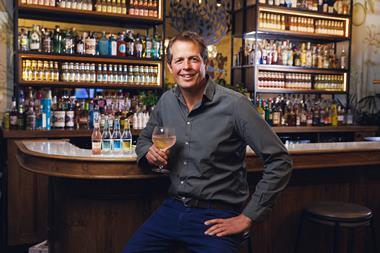
No comments yet